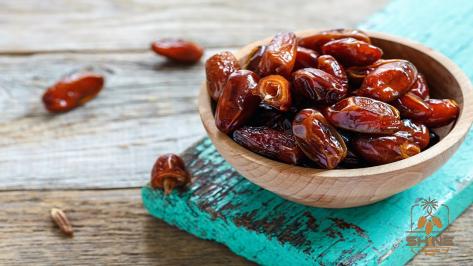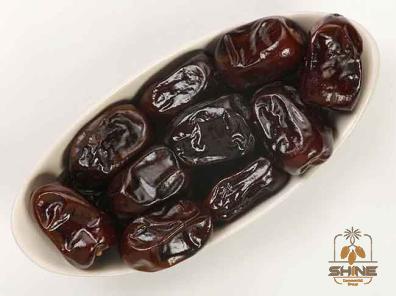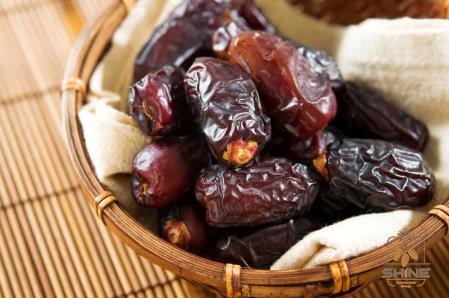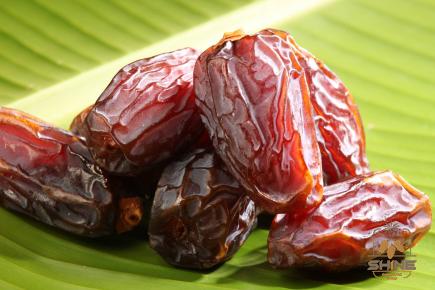When it comes to the world of dried fruits, two names stand out: dates and Medjool dates. Both are popular choices due to their delicious taste, rich health benefits, and versatility in various culinary creations. However, understanding the nuances and differences between these two options can help you make a more informed decision based on your personal preferences and needs.
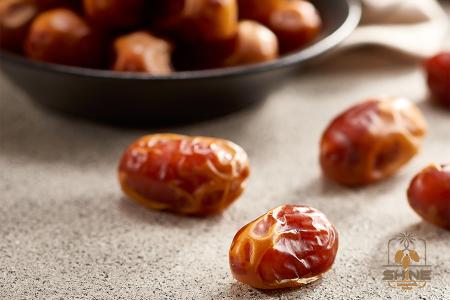
.
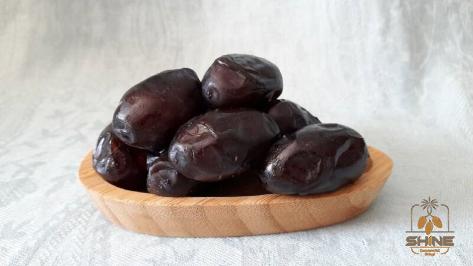 In this article, we will delve into the key distinctions, benefits, and comparisons of dates vs Medjool dates, allowing you to discover the perfect dried fruit companion for your lifestyle. 1. Origins and History: Dates, scientifically known as Phoenix dactylifera, have been cultivated for thousands of years in the Middle East and North Africa. These small, oval-shaped fruits grow in clusters on date palms, and their origin can be traced back to ancient Mesopotamia, where they were grown in the fertile lands of the Tigris and Euphrates rivers. Medjool dates, on the other hand, are a specific type of date that originated in Morocco. They were considered a delicacy and were reserved for royalty, hence earning the title “King of Dates.” In the 20th century, Medjool dates were introduced to the United States, specifically California. Today, they are widely cultivated and enjoyed around the world. 2. Appearance and Taste: Appearance-wise, both dates and Medjool dates share some similarities.
In this article, we will delve into the key distinctions, benefits, and comparisons of dates vs Medjool dates, allowing you to discover the perfect dried fruit companion for your lifestyle. 1. Origins and History: Dates, scientifically known as Phoenix dactylifera, have been cultivated for thousands of years in the Middle East and North Africa. These small, oval-shaped fruits grow in clusters on date palms, and their origin can be traced back to ancient Mesopotamia, where they were grown in the fertile lands of the Tigris and Euphrates rivers. Medjool dates, on the other hand, are a specific type of date that originated in Morocco. They were considered a delicacy and were reserved for royalty, hence earning the title “King of Dates.” In the 20th century, Medjool dates were introduced to the United States, specifically California. Today, they are widely cultivated and enjoyed around the world. 2. Appearance and Taste: Appearance-wise, both dates and Medjool dates share some similarities.
..
 They are brown in color and have a wrinkled texture. However, Medjool dates tend to be larger and plumper compared to regular dates. Their size and shape make them stand out visually. In terms of taste, dates are known for their natural sweetness. They have a caramel-like flavor with hints of honey and butterscotch. Medjool dates, in particular, are renowned for their gourmet taste. With a soft and chewy texture, they offer a burst of rich flavors that can be described as caramel, toffee, and even hints of chocolate. The depth of taste sets Medjool dates apart and contributes to their popularity in various desserts and dishes. 3. Nutritional Value and Health Benefits: Both dates and Medjool dates are nutritional powerhouses, packed with essential vitamins, minerals, and fiber. They serve as a great alternative to refined sugars and offer numerous health benefits. Let’s explore their nutritional profiles: Dates: – High in fiber: Dates are an excellent source of dietary fiber, aiding digestion and promoting a healthy gut.
They are brown in color and have a wrinkled texture. However, Medjool dates tend to be larger and plumper compared to regular dates. Their size and shape make them stand out visually. In terms of taste, dates are known for their natural sweetness. They have a caramel-like flavor with hints of honey and butterscotch. Medjool dates, in particular, are renowned for their gourmet taste. With a soft and chewy texture, they offer a burst of rich flavors that can be described as caramel, toffee, and even hints of chocolate. The depth of taste sets Medjool dates apart and contributes to their popularity in various desserts and dishes. 3. Nutritional Value and Health Benefits: Both dates and Medjool dates are nutritional powerhouses, packed with essential vitamins, minerals, and fiber. They serve as a great alternative to refined sugars and offer numerous health benefits. Let’s explore their nutritional profiles: Dates: – High in fiber: Dates are an excellent source of dietary fiber, aiding digestion and promoting a healthy gut.
…
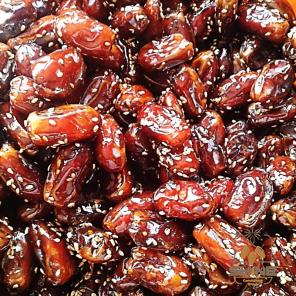 – Essential minerals: They are rich in potassium, magnesium, iron, and copper, all of which contribute to various bodily functions. – Natural energy boosters: Dates provide a quick energy boost due to their natural sugars and can be a great pre-workout snack. – Antioxidant properties: Dates contain antioxidants like flavonoids and phenolic acid, which scavenge free radicals and protect against oxidative stress. – Promote heart health: Regular consumption of dates has been associated with lower cholesterol levels, reduced blood pressure, and improved heart health. – Bone health support: Dates are a good source of calcium, which is essential for maintaining strong bones and preventing conditions like osteoporosis. Medjool Dates: – Rich in dietary fiber: Medjool dates are even higher in fiber, aiding digestion and promoting satiety. – Increased antioxidant content: Medjool dates contain higher levels of antioxidants, which help combat inflammation and protect against chronic diseases. – Natural source of minerals: They provide significant amounts of potassium, copper, and manganese, contributing to various bodily functions. – Boosts immune system: Medjool dates contain vitamins A and C, which support a healthy immune system. – Supports brain health: The high potassium content in Medjool dates is believed to promote brain health and improve cognitive function.
– Essential minerals: They are rich in potassium, magnesium, iron, and copper, all of which contribute to various bodily functions. – Natural energy boosters: Dates provide a quick energy boost due to their natural sugars and can be a great pre-workout snack. – Antioxidant properties: Dates contain antioxidants like flavonoids and phenolic acid, which scavenge free radicals and protect against oxidative stress. – Promote heart health: Regular consumption of dates has been associated with lower cholesterol levels, reduced blood pressure, and improved heart health. – Bone health support: Dates are a good source of calcium, which is essential for maintaining strong bones and preventing conditions like osteoporosis. Medjool Dates: – Rich in dietary fiber: Medjool dates are even higher in fiber, aiding digestion and promoting satiety. – Increased antioxidant content: Medjool dates contain higher levels of antioxidants, which help combat inflammation and protect against chronic diseases. – Natural source of minerals: They provide significant amounts of potassium, copper, and manganese, contributing to various bodily functions. – Boosts immune system: Medjool dates contain vitamins A and C, which support a healthy immune system. – Supports brain health: The high potassium content in Medjool dates is believed to promote brain health and improve cognitive function.
